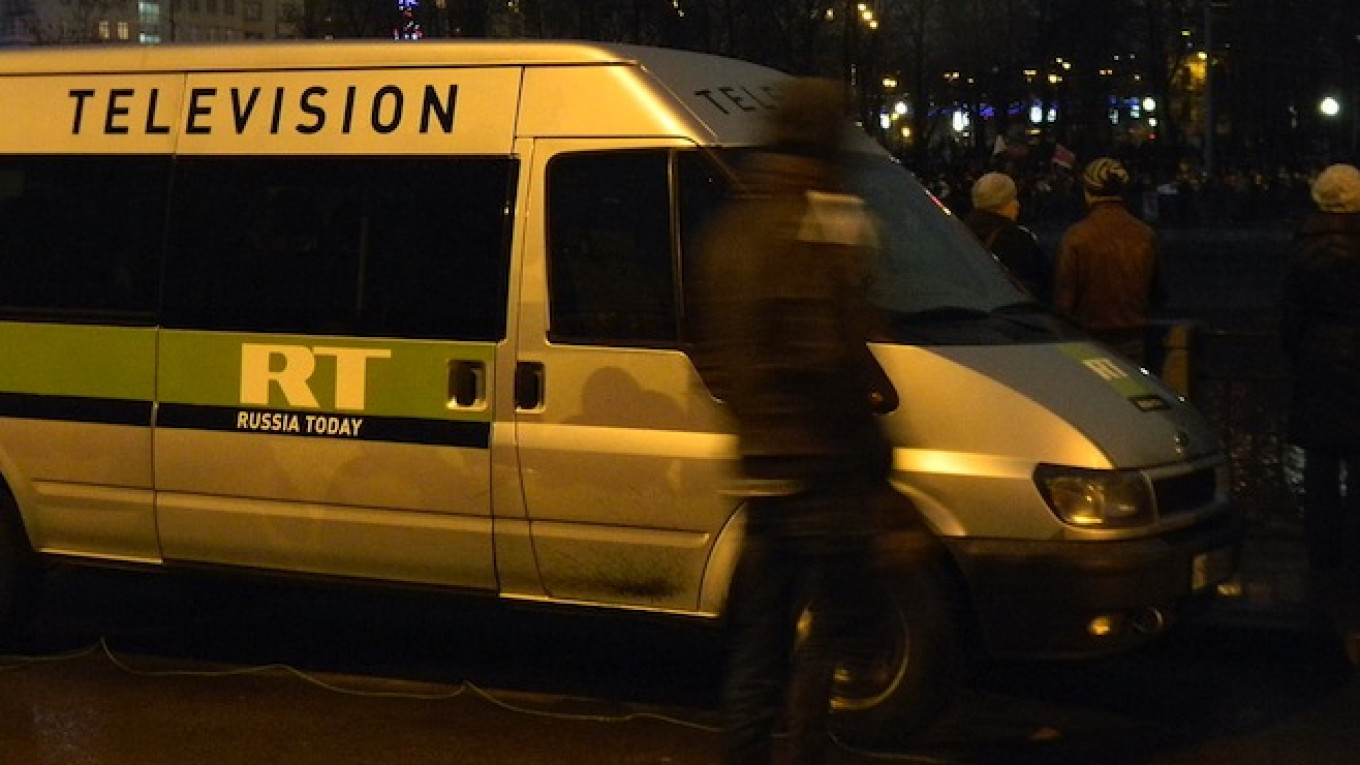European leaders will ask their foreign policy chief next week to draw up a plan to counter Russian "disinformation campaigns" over the conflict in Ukraine, draft conclusions of an EU summit showed.
EU leaders, meeting on March 19-20, will give the High Representative for Foreign Affairs Federica Mogherini three months — until their next summit in June — to work out how to support media freedom and European values in Russia.
"The European Council stresses the need to challenge Russia's ongoing disinformation campaigns and invites the High Representative...to prepare by the June European Council an action plan on strategic communication in support of media freedom and EU values," the draft said.
"It welcomes the establishment of a communication team as a first step in this regard," said the draft.
Russian government-funded TV stations, like RT, broadcasting in English, Spanish, Arabic, German and French have been steadily expanding their operations. Many Western broadcasters cut back their Russian-language services after the Cold War.
Sputnik
EU diplomats said the EU would need to find a way to tackle Russian disinformation within Russia itself, as well as in west European countries like Germany and in Russia's EU neighbors with large Russian minorities, like the Baltic states.
Russian domestic television, under strong state control, has portrayed the pro-Russian insurrection in eastern Ukraine as a spontaneous reaction to a coup by nationalist Ukrainian forces in Kiev. The West accuses Moscow of fomenting the fighting, providing arms and troops — something the Kremlin denies.
Last November, Russia launched a state-of-the-art media organization with hundreds of journalists abroad intended to wean the world off what it called aggressive Western propaganda — dubbing it, with echoes of the Cold War, Sputnik.
RT's London-based correspondent Sara Firth resigned last July over the station's coverage of the shooting down of Malaysia Airlines Flight MH17, accusing it of the "most shockingly obvious misinformation."
Four months earlier RT's Washington-based correspondent Liz Wahl resigned live on air, blaming the network's "whitewashing" of Moscow's military intervention in Crimea.
"There has been growing concern with the Russian propaganda and it is coming to a head now," one EU diplomat said.
A Message from The Moscow Times:
Dear readers,
We are facing unprecedented challenges. Russia's Prosecutor General's Office has designated The Moscow Times as an "undesirable" organization, criminalizing our work and putting our staff at risk of prosecution. This follows our earlier unjust labeling as a "foreign agent."
These actions are direct attempts to silence independent journalism in Russia. The authorities claim our work "discredits the decisions of the Russian leadership." We see things differently: we strive to provide accurate, unbiased reporting on Russia.
We, the journalists of The Moscow Times, refuse to be silenced. But to continue our work, we need your help.
Your support, no matter how small, makes a world of difference. If you can, please support us monthly starting from just $2. It's quick to set up, and every contribution makes a significant impact.
By supporting The Moscow Times, you're defending open, independent journalism in the face of repression. Thank you for standing with us.
Remind me later.


